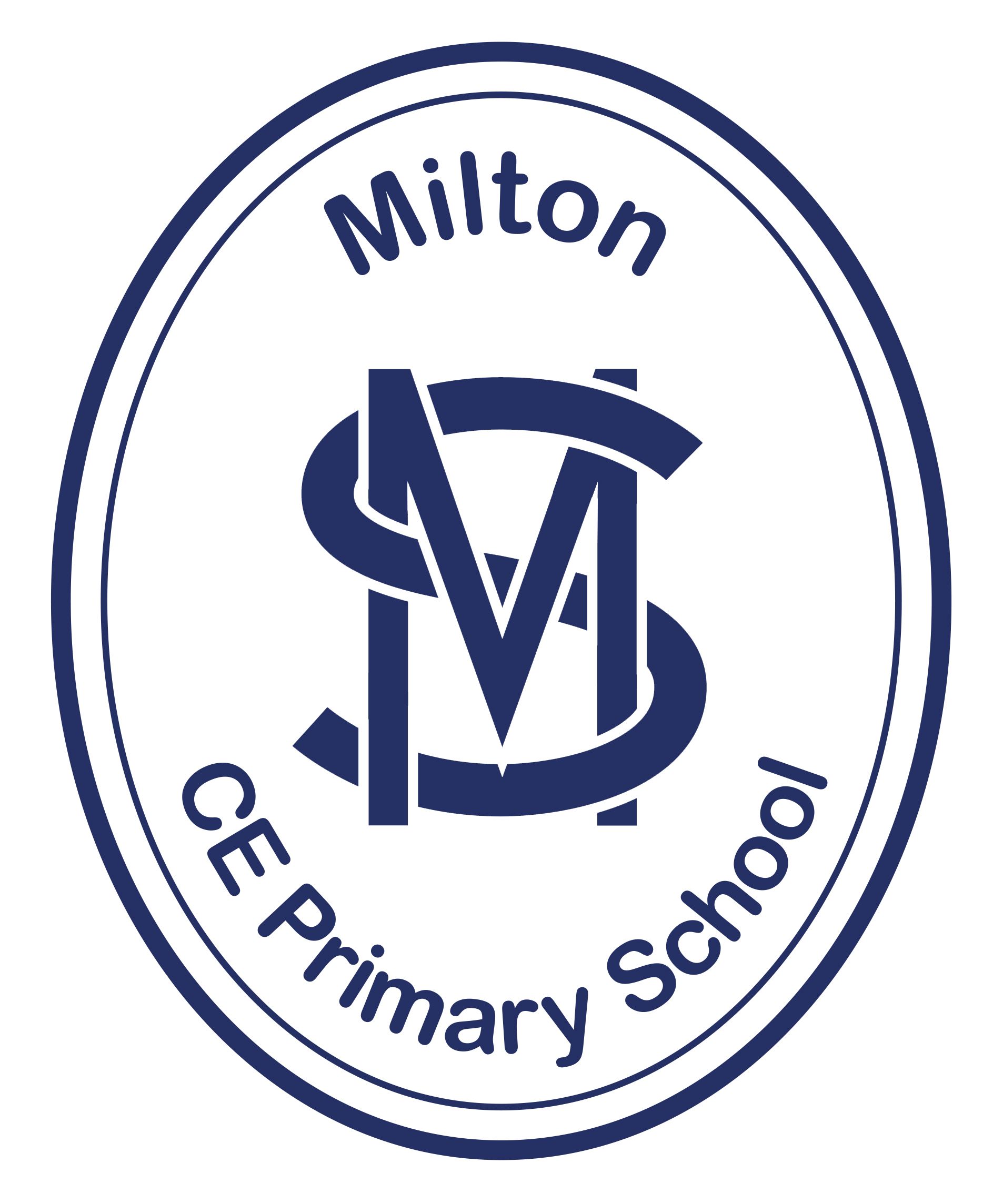
Equality and diversity
DEMAT is committed to promoting equality of opportunity for all staff and job applicants. We aim to create a supportive and inclusive working environment in which all individuals are able to make best use of their skills, free from discrimination or harassment, and in which all decisions are based on merit.
We do not discriminate against staff on the basis of age, race, sex, disability, sexual orientation, gender reassignment, marriage and civil partnership, pregnancy and maternity, religion, faith or belief (Equality Act 2010 protected characteristics). The principles of non-discrimination and equality of opportunity also apply to the way in which staff and Governors treat visitors, volunteers, contractors and former staff members.
Milton Church of England Primary School is committed to ensuring equality of provision throughout the schools’ communities. To achieve this, our equality objectives are as follows:
Equality Objectives
- To ensure all pupils in the school receive learning experiences which will enable them to achieve their potential and enrich their lives.
- To welcome and treat every member of the school as an individual.
- To encourage pupils to become responsible and independent while preparing them for their role in a wider social context.
- To reduce prejudice and increase understanding of equality and diversity within the school and promote within the wider community.
- To promote spiritual, moral, social and cultural development and understanding through a rich range of experiences both in and beyond the school.
Promoting British Values at Milton CofE Primary School
The Department for Education state that there is a need “to create and enforce a clear and rigorous expectation on all schools to promote the fundamental British values of democracy, the rule of law, individual liberty and mutual respect and tolerance of those with different faiths and beliefs”
The government set out its definition of British values in the 2011 Prevent Strategy and these values were reiterated by the Prime Minister in 2014.
At Milton CofE Primary School these values are reinforced regularly and in the following ways.
These values are taught explicitly through Personal, Social, Health and Emotional (PSHE), and Religious Education (RE). We teach British Values through a broad and balanced curriculum including regular lessons in Key Stage Two specifically about Rights and Responsibilities.
Our strong Christian identity is an ever-present guiding factor in the way children at our school learn to think of others and the world. Teachings from the Bible are made relevant to the values we still hold today in our daily acts of Collective Worship.
The school takes opportunities to actively promote British Values through whole school systems and structures such as electing and running a successful School Council and Eco Council.
Actively promoting British Values also means challenging opinions that are contrary to fundamental British Values, including ‘extremist’ views.
At Milton CofE Primary School we uphold and teach pupils about the British Values which are defined as:
- Democracy
- Rule of Law
- Individual Liberty
- Mutual Respect
- Tolerance of those with different faiths and beliefs
Democracy
Democracy is an important value at our school. Pupils have the opportunity to learn about democracy in our history, RE and PHSE curriculum and compare it to other types of governance. For example, through our history curriculum our Reception age children learn about monarchy; in Year 1 children learn about the Magna Carter and Oliver Cromwell’s parliament; in Year 4 children learn about the founding of democracy in Athens; in Year 5 the Bill of Rights is studied and finally, in Year 6, children compare democracy in the 19th century with today and communism and democracy in their unit on the Cold War.
The Rule of Law
The importance of laws and rules, whether they are those that govern the class, the school or the country, are consistently reinforced throughout regular school days. Our behaviour system is shared and understood by all pupils and staff so that our expectations are clear at all times. Pupils are taught the value and reasons behind laws, that they govern and protect us, the responsibilities that this involves and the consequences when laws are broken. They learn this through a variety of experiences, such as in history where laws protect citizens from monarchs and tyrants, and that as individuals and groups we can challenge laws through work on the suffragette movement. Children also consider the role of law in protecting our world through geography, PHSE, RE and collective worship.
Individual Liberty
Within school, pupils are actively encouraged to make choices, knowing that they are in a safe and supportive environment. As a school we educate and provide boundaries for our pupils to make choices safely, through the provision of a safe environment, a planned curriculum and an empowering education. Pupils are encouraged to know, understand and exercise their rights and personal freedoms and are advised how to exercise these safely, for example through our e-safety teaching and PSHE lessons. Pupils are given the freedom to make choices, e.g. signing up for extra-curricular clubs and through debating activities in lessons.
Through assemblies and our wider curriculum children learn about brave believers, who demonstrate courageous advocacy for the rights and liberty of others – these include current rights advocates such as Malala Yousafzai, Marcus Rashford and David Attenborough.
Mutual Respect
Respect is a core value of our school. This can be seen and felt in our pervading Christian ethos in school. The pupils know and understand that it is expected and imperative that respect is shown to everyone, whatever differences we may have and to everything, however big or small. The core value of respect at Milton C of E Primary School underpins our work every day both in and out of the classroom. Children and adults alike are challenged if they are disrespectful in any way.
Tolerance of Those with Different Faiths and Beliefs
This is achieved through enhancing pupils’ understanding of their place in a culturally diverse society and by giving them opportunities to experience such diversity in our local community. Collective acts of Worship and discussions involving prejudices and prejudiced-based bullying have been followed and supported by learning in RE and PSHE. In RE, our curriculum introduces the children to other major faiths and we have trips to places of worship to enhance their understanding. Part of this is the study of religious festivals such as Diwali.

